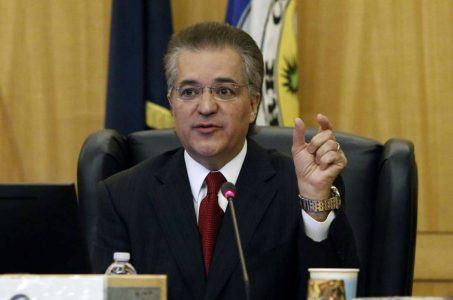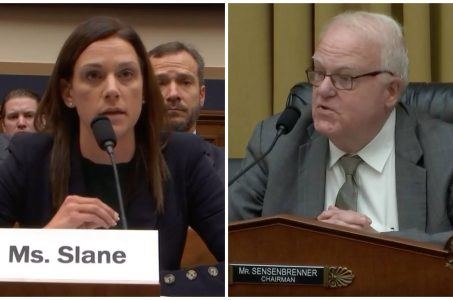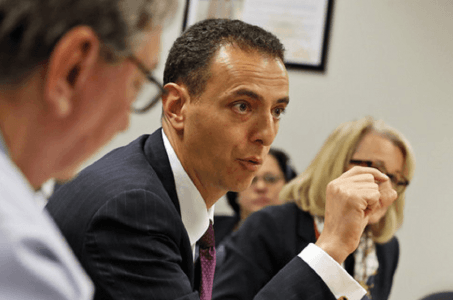US Sports Betting Industry Celebrates Two-Year Anniversary of PASPA Repeal
Posted on: May 14, 2020, 07:20h.
Last updated on: May 15, 2020, 09:25h.
Thursday marked two years since the Supreme Court struck down the Professional and Amateur Sports Protection Act (PASPA), a move which allowed states to regulate sports betting as they see fit.

On that day in 2018, only one state – Nevada – hosted sportsbooks and offered single-game sports betting. Now, 18 states have some form of sports wagering up and running, with four more and Washington D.C. having passed laws to legalize the practice.
Sports Betting Rapidly Expands
In total, legal sportsbooks in the United States have taken in $21.8 billion in handle over the past two years, according to the Action Network. While Nevada remains the largest sports betting market in the United States, New Jersey is hot on its heels, and has even beaten the Silver State in total handle in some months.
Today, more than 30 percent of the US population lives in states where regulated sports betting exists, according to the American Gaming Association. It’s a level of expansion few expected when the Supreme Court released its decision two years earlier.
I would have lots a lot of money if I was given a chance to wager on whether non-gaming states, like Tennessee, Virginia, and New Hampshire would legalize mobile sports betting in these first two years,” lobbyist Jeremy Kudon told ESPN.
The biggest successes have come in states that have legalized mobile and online sports betting. Six states now have full mobile betting available, including New Jersey, Pennsylvania, and Indiana. In New Jersey, nearly 90 percent of all bets come from mobile devices.
Meanwhile, states which only allow in-person betting have generated only a fraction of the revenue. While New York – which only allows betting at its four upstate casinos – doesn’t release handle figures, its sportsbooks made just under $2 million in revenue in January, compared to the $53.6 million taken in by bookmakers in New Jersey.
State-by-State Regulation, COVID-19 Challenges
Not everything in the sports betting industry has gone smoothly since the PASPA repeal. As the above example shows, state-by-state regulation means every jurisdiction is playing by different rules, confusing the situation for gamblers and operators alike.
Sports leagues have also had a contentious relationship with gambling. While teams and leagues have partnered with casinos and gaming firms, they’ve also lobbied for friendly terms in state sports betting bills, primarily in an attempt to make operators use official league data.
Most recently, the COVID-19 pandemic has thrown a wrench into the industry. Sports betting seemed to be on an endless growth trajectory until the coronavirus shut down leagues and competitions worldwide. In April, bettors wagered just $54.6 million in New Jersey, the lowest total since July 2018 – the first full month of sports wagering in the state, and before any online betting was available.
Despite the pandemic, the long-term future looks bright for sportsbooks. Not only are events like UFC 249 generating record handle – showing that there’s still an appetite for betting – but industry insiders believe more states will continue to regulate sports gambling in the months and years to come.
“When legislatures return in earnest, we firmly believe the number of states ready to consider accelerating mobile sports betting and online gaming legislation to drive tax revenue will expand substantially,” FanDuel CEO Matt King told ESPN. “Across the board, it’s a time for pragmatism, and we see that producing a real opportunity for significantly expanding the map.”
Related News Articles
Most Popular
LOST VEGAS: The Foster Brooks Robot at MGM Grand
Bally’s Sets Date for Tropicana Las Vegas Implosion & Party
Most Commented
-
VEGAS MYTHS RE-BUSTED: You Don’t Have to Pay Resort Fees
— August 2, 2024 — 16 Comments -
VEGAS MYTHS RE-BUSTED: Elvis Was a Straight-Up Racist
— August 9, 2024 — 11 Comments -
ANTI-SOCIAL BEHAVIOR: Vegas Casino Buffet Stunt in Poor Taste Goes Viral
— August 16, 2024 — 7 Comments -
VEGAS MYTHS RE-BUSTED: The Strip Tried Appealing to Families and Failed
— August 23, 2024 — 7 Comments
















No comments yet